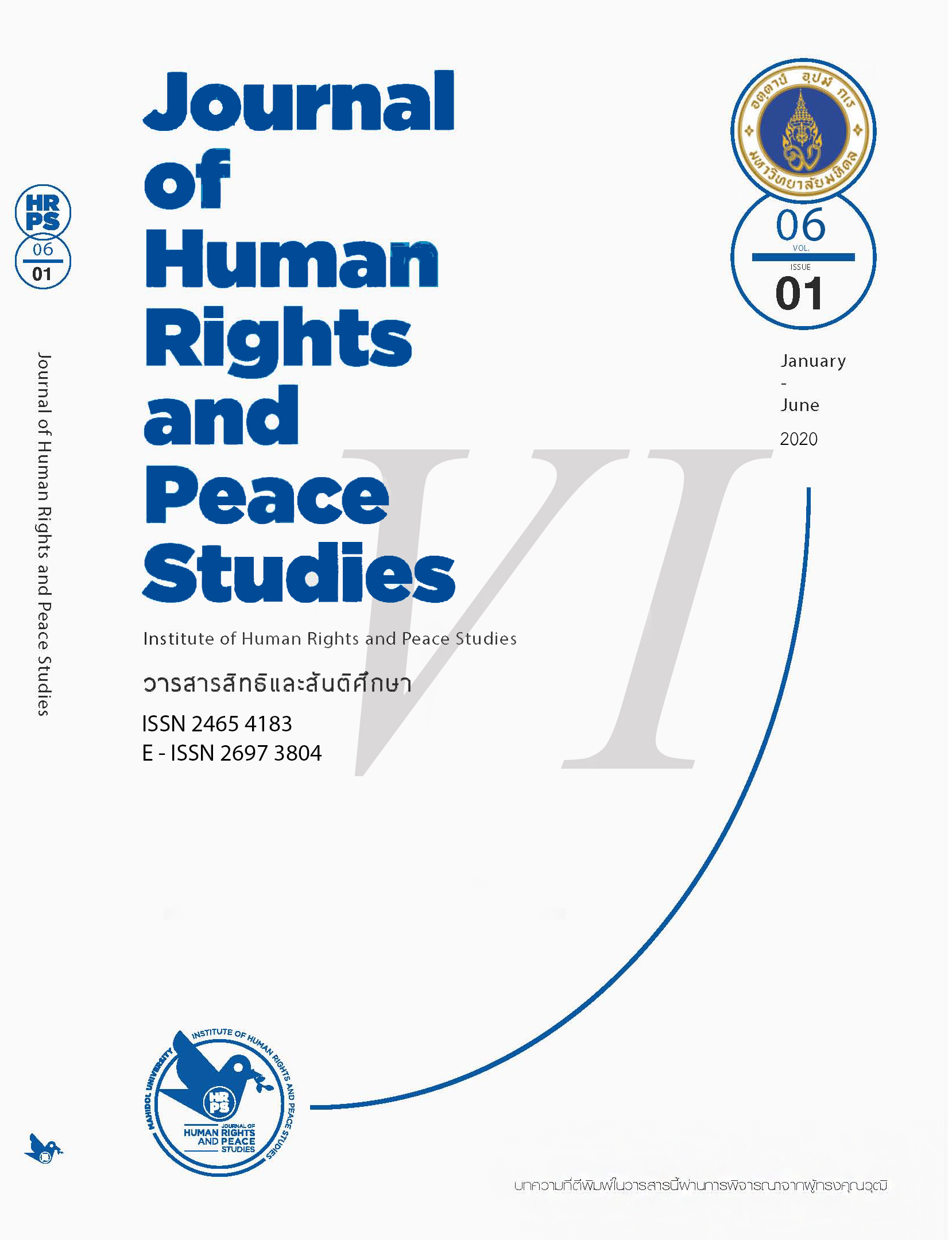On the Dark Side of Democracy: The Deviation from Democratic Principles and the Failure of Creating Common Consensus
Main Article Content
Abstract
This article presents the argument of the dark sides of democracy by introducing four books including: Size and Democracy (Dahl & Tufte, 1973), The End of History (Fukuyama, 2002), Violent and Democracy (Ross, 2004), and The Dark Side of Democracy: Explaining Ethnic Cleansing (Mann, 2005) to open the debate. On the light side, representative democracy has been recognized as an innovation that makes the old kind of direct democracy obsolete. Nevertheless, as time passed by, some scholars argue that certain democratic regimes may be inclined to associate with violence that exposes the dark side of democracy. This article attempts to reveal the failure of democracy in creating a common consensus in the society and its deviation from original democratic principles. Instead of upholding democratic values and principles, aggression and rage among people in the society could justify the efforts that deviate from democratic principles in the name of protecting democracy itself.
Article Details

This work is licensed under a Creative Commons Attribution-NonCommercial-NoDerivatives 4.0 International License.
The views, opinions, and pictures expressed in this journal are those of the authors and do not necessarily reflect the opinions and viewpoints of the editor and the editorial board. All rights are reserved by the authors and the Institute of Human Rights and Peace Studies of Mahidol University. No part of this journal may be reproduced, stored in a retrieval system, or transmitted in any form or by any means without the prior permission in writing from the journal’s editor, or as expressly permitted by law, or under terms agreed with the appropriate reprographics rights organization. Non-commercial use of information in this journal must be properly referenced.
References
BBC. (2016, January 19). Who were Germany's Red Army Faction Militants?. BBC. https://www.bbc.com/news/world-europe-35354812
BBC. (2018, July 26). Tokyo Sarin Attack: Japan executes last Aum Shinrikyo members on death row. BBC. https://www.bbc.com/news/world-asia-44962581
Birch, A. H. (2007). Concepts and theories of modern democracy. Routledge.
Clarke, C. P. & Lister, C. (2019, September 4). Al Qaeda is ready to attack you again. Foreign Policy. https://foreignpolicy.com/2019/09/04/al-qaeda-is- ready-to-attack- you-again/
Collier, P. (2010). War, gun, and votes: Democracy in dangerous places. Harper Collins.
Dahl, R. A. & Tufte, E. R. (1973). Size and democracy. Stanford University Press.
Fukuyama, F. (1989).The end of history. The National Interest. 16(2), 3-18.https://www.embl.de/aboutus/science_society/discussion/discussion_2006/ref1-22june06.pdf
Fukuyama, F. (2002).The end of history and the last man. Harper Collins.
Jacobs, L. A. (1997). An introduction to modern political philosophy: The democratic vision of politics. Prentice Hall.
Jenkins, J. P. (n.d.).Red Brigades: Italian militant organization. Encyclopædia Britannica. https://www.britannica.com/topic/Red-Brigades#accordion-article-history
Kay, J. (2013). The tyranny of the minority in the age of technology. The Financial Times.https://www.ft.com/content/7cee4b2c-d1df-11e2-9336-00144feab7de
Mann, M. (2005). The dark side of democracy: Explaining ethnic cleansing. Cambridge University Press.
Oner, S. (2003). A brief analysis of Fukuyama's thesis the end of history?. İstanbul Üniversitesi Sosyoloji Konferansları Dergisi. https://dergipark.org.tr/tr/download/article-file/100889
Ross, D. (2004). Violent democracy. Cambridge University
Press.
Safford, J. H. (2002). Democracy is dangerous: Resisting the tyranny of the majority. UniversityPress of
America.
Shorten, A. (2016). Contemporary political theory. Palgrave.
Tuckness, A. & Wolf, C. (2017). This is political philosophy: An introduction. John Wiley & Sons.
Wilkinson, P. (2011). Terrorism versus democracy: The liberal state response. Routledge.
Wolff, J. (1996). An introduction to political philosophy. Oxford University Press.


